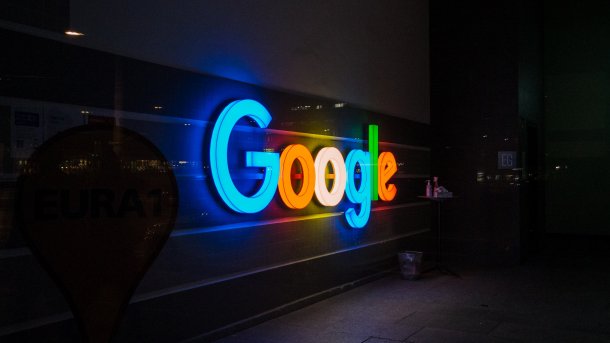Competition complaint: Google offered millions to fight Microsoft's cloud
Google held out the prospect of tens of millions of euros so that a European cloud association would uphold its antitrust claim against Microsoft.

(Image: YueStock/Shutterstock.com)
In July, the industry association Cloud Infrastructure Service Providers in Europe (CISPE) surprisingly withdrew its competition complaint against Microsoft with the EU Commission. It has now come to light that US competitor Google apparently wanted to persuade CISPE to uphold the antitrust complaint with financial incentives worth millions. Amit Zavery, until recently Chief Executive Officer of Google Cloud, offered CISPE members an innovation fund of 4 million euros, among other things, writes The Register with reference to confidential documents.
According to the report, Google described the offer as a contribution of 100,000 euros per company in the association, which could be used as "immediate funding for projects and license fees from CISPE members to support innovation in open cloud ecosystems". Google also offered to contribute a further €10 million to the association, which was described in the presentation as "participation and membership resources". The final and most significant incentive was said to be 100 million euros in software credits from Google Distributed Cloud. These were said to be virtually free programs for Kubernetes-based cloud deployments.
According to conversations with CISPE sources, The Register assumes that the offers were intended to convince the association not to drop the complaint against Microsoft. Google denies that there is a direct link.
"Tax", "extortion" – CISPE kept up the pressure
In November 2022, CISPE complained to the Commission's Directorate-General for Competition about a wide range of bundling and tying traps at Microsoft. The US company "bundles its products with the indispensable Office suite and thus favors the in-house Azure cloud over competing cloud infrastructures", Francisco Mingorance, Secretary General of the association, never tired of emphasizing. The industry representative used to work for the more Microsoft-friendly lobby association Business Software Alliance (BSA).
In June 2023, CISPE presented a study by US competition lawyer Frédéric Jenny, according to which companies and authorities in Europe pay an additional "tax" of several billion euros to Microsoft every year. The reason: they run Microsoft programs they have purchased in a cloud infrastructure that does not belong to the software giant. Since 2019, Microsoft customers have no longer been able to take their old licenses with them to a "shared infrastructure" of cloud providers such as AWS, Google and Alibaba. In April 2023, the association complained that Microsoft's price increases for cloud products amounted to extortion.
Videos by heise
CISPE currently has 36 members, including Oxya, Leaseweb, UpCloud, Serverplan and market leader AWS as the only non-European participant. In July, the number was even smaller. Despite the Google offers, the association opted for a settlement at the time. Microsoft promised corrections to its contractual clauses for its own cloud services. An extended version of Azure Stack HCI is also planned so that European cloud providers can offer Microsoft applications and services on their infrastructures. The giant will reportedly also pay around 20 million euros to CISPE. A short time later, the French cloud service provider OVHcloud also reached an agreement in a long-running antitrust dispute with Microsoft with a similar focus.
Slugging it out from all sides
The Commission's antitrust watchdogs have been investigating since May 2023 whether the Redmond-based company is exploiting its market power to drive competitors out of the highly competitive cloud business. The recent withdrawals make it less likely that the Brussels government institution will file an official competition complaint. In September, Google itself complained to the EU competition investigators that Microsoft was abusing its own market power in Windows servers as leverage for Azure. Zavery repeatedly accused the competitor of bringing the entire cloud business into disrepute through anti-competitive practices.
A CISPE spokesperson confirmed to The Register that the members had been "presented with alternatives to accepting the Microsoft deal". However, they had voted overwhelmingly in favor of accepting the Microsoft offer, which they said "represents the best opportunity for the European cloud sector". Zavery, who joined US cloud provider ServiceNow last month, had vaguely stated at a press conference in September that many providers were supported in the fight for fair and open licensing practices. A Google spokesperson denied any concrete payment offers to CISPE at the time. The internet company has now said that it is considering joining CISPE to strengthen choice and innovation in the digital economy in Europe. Google has already joined the Open Cloud Coalition (OCC), which is primarily made up of smaller British operators. Microsoft recently described the OCC as a lobbying submarine for Google.
(nen)